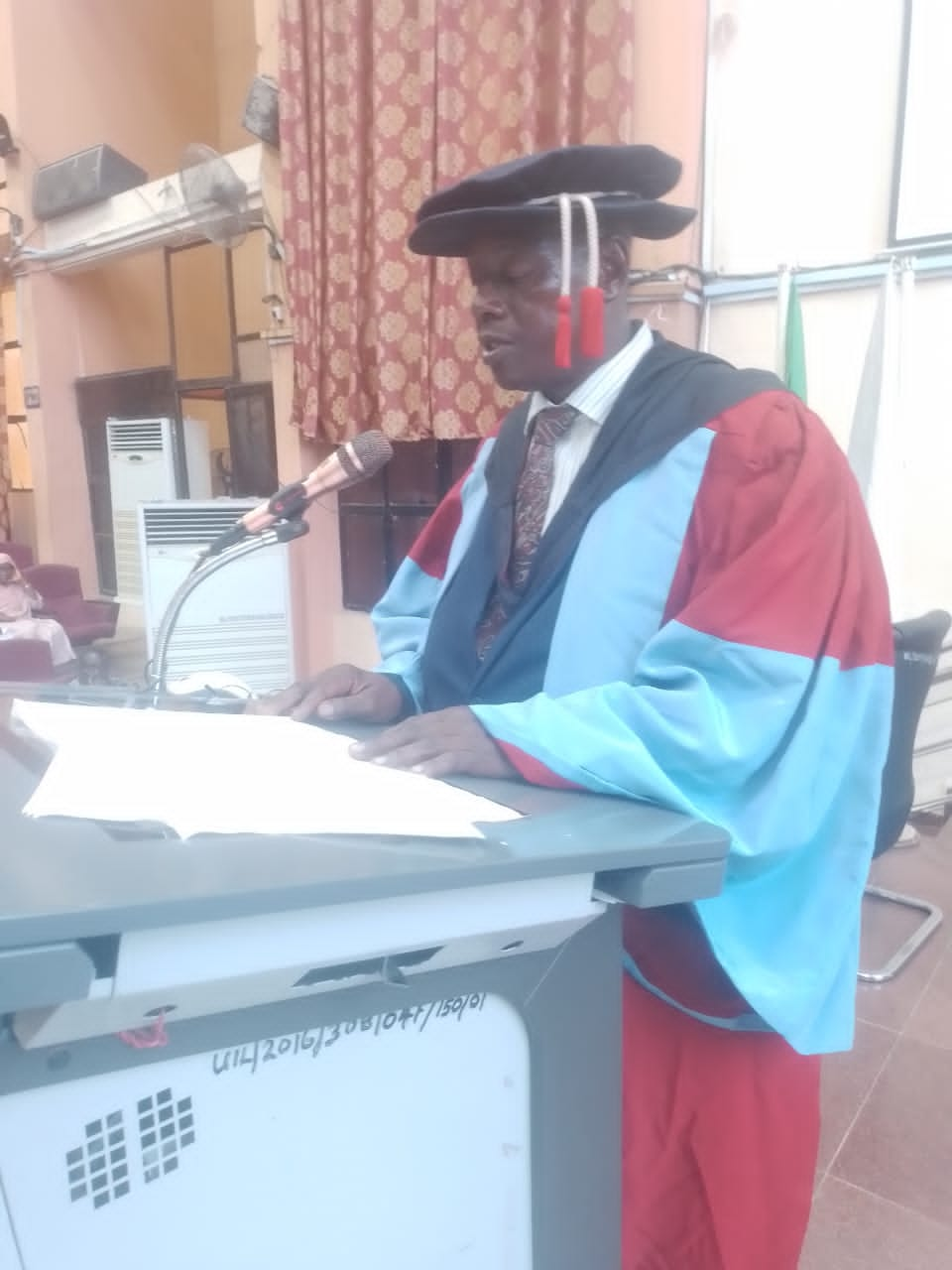 By Gbolahan Balogun -
By Gbolahan Balogun -
In an insightful and thought-provoking lecture, Professor Mahmud Kayode Adebayo of the Department of Private and Property Law at the University of Ilorin has called for robust constitutional measures to protect and enforce women’s reproductive health rights in Nigeria.
Delivering the University’s 265th inaugural lecture titled “On the Reproductive Autonomy of My Right or Not My Choice”, Adebayo delved into the pressing issues surrounding women’s bodily autonomy, discrimination, and gender-based violence.
He underscored the need for women and girls to lead healthy, dignified lives, free from stigma and violence, emphasising the critical importance of reproductive health rights in achieving this goal.
At the heart of Adebayo’s advocacy is a vision of a world where women and girls have full control over their bodies and future. This includes decisions about pregnancy, access to healthcare, and the freedom to live without coercion. “Understanding these rights enables women to stand up for themselves in society, improving their decision-making and access to healthcare and reproductive services,” he remarked.
The Need for Constitutional Protection
Adebayo highlighted a fundamental flaw in Nigeria’s legal framework regarding the protection of women’s reproductive health rights. He proposed that these rights be granted constitutional status, ensuring their enforceability and shielding them from anti-reproductive provisions in current laws. “A permanent constitutional status would automatically repeal any legislation that undermines reproductive health rights, creating a more effective legal regime to sanction gender-based violence at home, in schools, and at workplaces,” he asserted.
 Drawing from the Human Rights provisions in Chapter IV of the 1999 Constitution (as amended), Adebayo reminded the audience that the right to life, dignity, and freedom from discrimination are enshrined and enforceable. However, he argued that these rights must be interpreted to extend fully to women’s reproductive and sexual autonomy, particularly the protection from gender-based discrimination under Section 42 of the Constitution. Adebayo called for more aggressive enforcement of these provisions, stating that women are entitled to challenge any interference with their rights in court.
Drawing from the Human Rights provisions in Chapter IV of the 1999 Constitution (as amended), Adebayo reminded the audience that the right to life, dignity, and freedom from discrimination are enshrined and enforceable. However, he argued that these rights must be interpreted to extend fully to women’s reproductive and sexual autonomy, particularly the protection from gender-based discrimination under Section 42 of the Constitution. Adebayo called for more aggressive enforcement of these provisions, stating that women are entitled to challenge any interference with their rights in court.
Sexual and Reproductive Health: A Human Right
Professor Adebayo was unequivocal in his assertion that sexual rights are a fundamental component of human rights. These rights include the liberty to experience and express sexuality within a relationship, free from violence or coercion. Citing scholar Ezeilo (2003), Adebayo emphasised that sexual rights are integral to achieving gender equality. Without them, women and girls are vulnerable to practices like female genital mutilation (FGM), sexual harassment, rape, and domestic violence.
He further noted that reproductive health rights, which are recognised in international legal frameworks, include the right for couples to decide freely and responsibly on the number and timing of their children, as well as the right to the highest standards of reproductive healthcare. Adebayo argued that women must have control over their bodies, free from discrimination and violence, and should have access to comprehensive reproductive healthcare and information.
Barriers to Women’s Rights
Globally, women continue to face significant barriers to the enjoyment of their rights due to factors such as race, language, culture, and socio-economic class. Adebayo emphasised that women’s reproductive health rights are not just legal issues but societal ones, deeply tied to cultural practices, religion, and socio-economic realities. He called for increased awareness and education on these rights, noting that a lack of recognition and understanding often exacerbates marginalisation.
Recommendations for Reform
In a series of forward-thinking recommendations, Adebayo advocated for the inclusion of women’s reproductive rights in the Nigerian Constitution as part of a new chapter on socio-cultural rights. He urged that these rights be made enforceable, either through amending Chapter IV of the Constitution or by creating a separate section dedicated to women’s rights.
He further recommended greater education and awareness campaigns to empower both men and women on the importance of reproductive rights.
Adebayo highlighted the need for governmental and non-governmental organisations to play a more active role in protecting these rights, partnering with the private sector to mobilise resources for education, legal aid, and healthcare services.
Additionally, he called for the harmonisation of international treaties and protocols on women’s rights into a single instrument under Nigerian law, to ensure their proper implementation. Adebayo also called for reforms to the language of the 1999 Constitution to eliminate gender discrimination, pointing specifically to sections that perpetuate inequality, such as the provision that a Nigerian woman cannot confer citizenship on her foreign husband.
Adebayo concluded by proposing the creation of a specialised court to address violations of women’s reproductive rights. He lamented the current inefficiencies of the Family Court and stressed that a dedicated legal body could better address issues such as marital rape, harmful traditional practices, and property rights for women.




Comments powered by CComment